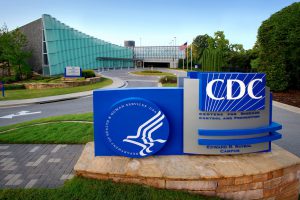
The Centers for Disease Control and Prevention (CDC) will investigate if gynecologists should conduct more pre-operative cancer screenings thanks to a recent letter from U.S. Rep. Brian Fitzpatrick (R-PA) and a study published by the American College of Obstetricians and Gynecologists (ACOG).
CDC Director Robert Redfield has decided to take action after receiving the congressman’s April 24 letter asking him to “consider whether the gynecological field should place a more stringent effort on using tissue biopsy to identify the American women who are at risk.”
Redfield also was prompted to initiate a CDC review by a study ACOG published in the April issue of its flagship publication, The Green Journal. The study, “Occult Gynecologic Cancer in Women Undergoing Hysterectomy or Myomectomy for Benign Indications,” concluded that for about 1 in 50 women — out of roughly 24,000 women who had undergone hysterectomies without evidence of known or suspected cancer pre-operation — there was actually a “prevalence of occult corpus uteri, cervical, and ovarian malignancy,” according to an abstract of the study.
“The incidence of cancer presented in the Green Journal study are much too high to comfortably accept. I look forward to working with Director Redfield to increase vigilance on any procedure that might lead to cancer spread or upstaging,” Rep. Fitzpatrick said in a May 7 statement after learning the CDC would conduct a review.
According to news media reports, a CDC plan on how to go forward with its investigation is now being reviewed by the U.S. Department of Health and Human Services, its oversight agency.
“American women undergoing surgery deserve to have all the facts,” added Rep. Fitzpatrick. “I am disturbed to hear that current guidelines in American gynecology may not be enough to detect cancer before women undergo surgery.”
The congressman first heard about the published ACOG study from his constituents, according to his letter to Redfield, in which Rep. Fitzpatrick also alerted the CDC director to the potential health hazards.
“It is my understanding, that performing ‘non-oncological’ operations (such as morcellation) on women harboring occult cancers can result in a potentially deadly spread or upstaging of that cancer,” he wrote.
“Moreover, as a medical layman, I was quite concerned to learn from my constituents that the gynecology specialty may not be performing any adequate uterine tumor biopsies in order to make a best attempt at identifying the American women at risk of having occult cancers,” wrote the congressman. “The question for CDC is whether gynecologists are doing enough to identify at risk women.”
This week, Rep. Fitzpatrick reiterated that stance by saying the gynecology specialty should be making its best attempt to identify any women who may be at risk of having occult cancers – such as the one his constituent Dr. Amy Josephine Reed succumbed to in 2017. Prior to her death, the 44-year-old mother of six and her cardiac surgeon husband, Dr. Hooman Noorchashm, waged war to ban a medical device called a power morcellator, which is a surgical tool used to slice tissue during a hysterectomy. One was used during Reed’s operation in 2013 and later was blamed for spreading her then-undetected malignancy and worsening her prognosis. Rep. Fitzpatrick helped the Yardley, Pa., family be heard on Capitol Hill and their battle drastically reduced use of the device.
The Reed-Noorchashm family also spearheaded a public awareness campaign on unsafe medical devices and worked closely with Rep. Fitzpatrick to alert the CDC to the deadly effects they could have on women’s health, according to the congressman’s office.
In a May 5 article written for the online Medium, Noorchashm wrote, “There is almost no question that Rep. Fitzpatrick’s letter to CDC was unprecedented, timely and based on his committed experience representing families of women affected by cancers of the uterus.”
More important, noted Noorchashm, particularly with November elections approaching, is that Rep. Fitzpatrick “has the insight, clarity and courage in representing his district, to listen and to understand a seismic threat to the health of American women from across the nation. And he has acted without hesitation in their defense!”



